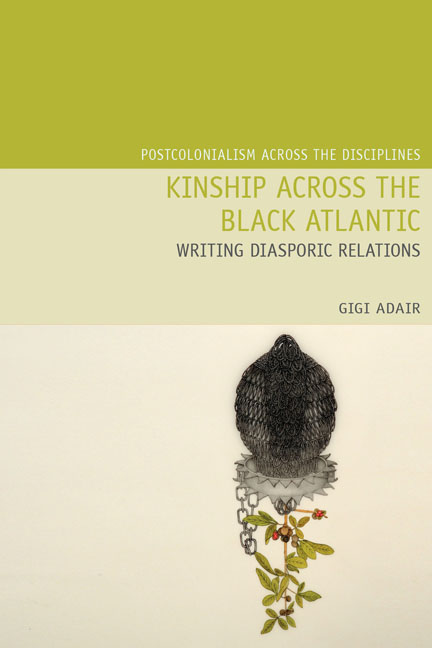Conclusion: Diasporic futures?
Summary
The novels considered here were all written around the turn of the twentyfirst century, in an age of increasingly rapid globalization, technologization and changes to established legal and institutional kinship forms in the Caribbean, European and North American locations in which they are set and were written. Migration and diasporic displacement are becoming common experiences, for ever more people, alongside global flows of capital, and global changes—to the Earth and its climate, to our interaction with technology, or to lived and legally recognized kinship—have motivated new theorizations of what it means to be human, and to be a subject, today. Amidst these efforts to find new ways to describe and imagine life in the global present, postcolonial and anticolonial scholarship and politics are not necessarily considered adequate resources—even when explicitly concerned with migration and diaspora and the resulting forms of subjectivity and community. The novels considered here, however, prompt a different view of the current moment: they suggest a longer history of non-linear, non-unitary subjectivities and complex modes of interrelationality, restricted neither to the (white) western world nor the present; and not necessarily engendered only by the newest technological developments. They show that a focus on kinship enables both the historical and current ideological pressures on personhood and the limits and meanings of humanity to come into view, particularly (but not only) in the diasporic contexts that are becoming more widespread amidst global migration flows and the multiple forms of displacement caused by climate change. By writing and rewriting diasporic kinship, they offer a vital reminder that current debates around posthumanism are necessary not only due to recent technological developments, but rather emerge from a longer history of black diasporic, indigenous, post- and anticolonial critiques of liberal humanism and modernity.
Kinship is central to subjectivity, these texts suggest, but it is neither bound to normative forms nor unburdened by history, neither fixed nor entirely free. It can be, and has been, deployed as a political tool of colonial oppression and exploitation, and as form of resistance by the colonized and enslaved. It may limit and constrain subjectivity and codify legitimate personhood, and it may be the means to transformative becomings that promise other ways of being in the world, of relating to history and to each other.
- Type
- Chapter
- Information
- Kinship Across the Black AtlanticWriting Diasporic Relations, pp. 175 - 182Publisher: Liverpool University PressPrint publication year: 2019



